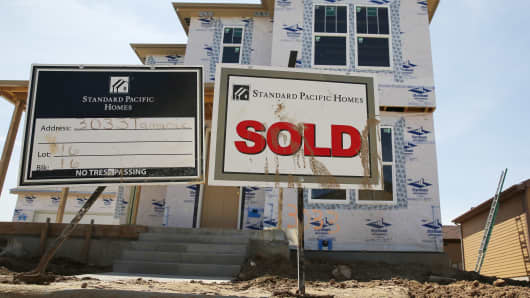Supplies of new and existing homes are at levels not seen since the frenzy of the last housing boom. The phenomenon is national and not just relegated to the former boom markets. April listings were down 41 percent from a year ago in Los Angeles, down 24 percent in Houston, down 27 percent in Washington, DC and down 29 percent in Minneapolis. While the stock of newly built homes on the market rose to an 18-month high, builders are still facing land and labor shortages, which will keep starts lower than they could or should be based on demand.
(Read More: Homes Selling at Fastest Pace Since Boom)
"It has the look of a runaway housing boom again," said Jane Fairweather, a Realtor in Maryland, who added that looks can be deceiving. "What you have is very inexpensive money and you have very few houses for sale. As soon as interest rates go up, I think you'll see a lot of people back off."
Interest rates have been moving steadily higher. After Wednesday's speech by Federal Reserve Chairman Ben Bernanke, rates took another jump of 0.375 percentage points.
"It's an over-correction, but a painful one for buyers," said Dan Green of Waterstone Mortgage. "A home buyer has five percent less home purchasing power as compared to 24 hours ago.
In the end, sales will come down to buyer confidence, affordability and mortgage rates. Even if that last one moves higher, rates are still historically low and confidence is gaining steam despite the rising prices.
"This week I had a seller who got a full price offer in about four days and he refused to take it because he wanted multiple contracts, come on!" exclaimed Fairweather.
—By CNBC's Diana Olick; Follow her on Twitter @Diana_Olick or on Facebook at facebook.com/DianaOlickCNBC
Questions? Comments? RealtyCheck@cnbc.com



